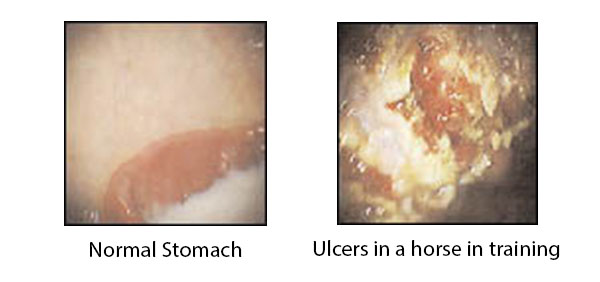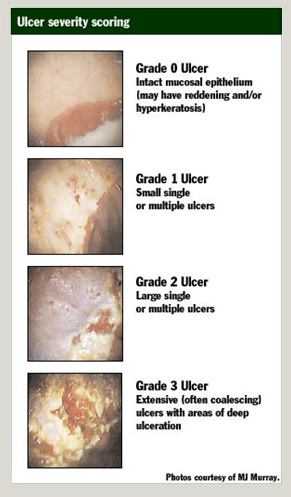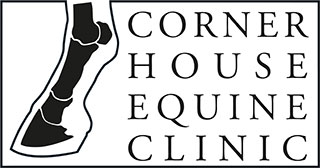By Kate Sutton BVM&S MRCVS
Gastric ulcers are a common problem in today’s horse population. Studies have shown that gastric ulcers occur in up to 37% of non-performance horses, 63% of performance horses and in 93% of racehorses in training.
Not only adults are affected
Around 50% of foals develop gastric ulcers, especially during the first 6 months of life. Unlike in adults, gastric ulcers in foals can be fatal.
Clinical Signs are often vague
- Dull coat
- Weight loss
- Poor appetite
- Behavioural changes or depression
- Poor performance
- Mild or recurrent colic
- Teeth grinding
- In foals: Intermittent nursing, dorsal recumbency (lying on their backs), diarrhoea (or a history of diarrhoea), excessive salivation, rough hair coat.Gastric ulcers tend to be under-diagnosed as many horses show no outward clinical signs.

Risk factors for the development of gastric ulcer
- Intensive exercise or training
- Diet – high concentrates, prolonged periods without food
- Transportation
- Stable confinement
- Psychological stress
- Non-steroidal anti-inflammatory medications at high doses.
Gastric ulcers can be of varying severity
- Inflamed but intact epithelium
- Superficial erosions or scarring
- Discreet or widespread erosions or ulcers
- Bleeding erosions or ulcers
- Deep ulcers with necrotic centres
- Perforation – usually fatal (usually only in foals).
Diagnosis


A presumptive diagnosis can be made based on clinical signs. However, the only way to make a definitive diagnosis and formulate a treatment plan is with a 3-meter video endoscope. We now have this facility available at the clinic.
Treatment
GastroGardä (Omeprazole) – has been shown to significantly improve ulcers in 99% of horses treated, often with noticeable results in just a few days.
Prevention and Management Recommendations
- GastroGardä used at quarter the normal dose prevents gastric ulcers in many horses.
- Antacids such as U-Gardä and Neigh-loxä can possibly help prevent ulcers.
- Corn oil added to feed.
- As much turnout as possible.
- Ad-lib hay / haylage.
If you would like any further information on Gastric Ulcers please contact us.

